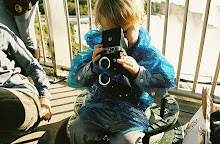Road To Nowhere

“He thought he wrote about the future, but it really was the past. In his novel, a mysterious train left for 2046 every once in a while. Everyone who went there had the same intention: to recapture their lost memories.”
To a certain degree, leaving always requires the intervention of fiction. In order to leave, you have to turn (your back, your attachments) in a different direction, and you alter the narrative of the story you’ve been telling yourself about a lover. You’ve come to understand something about a person that he can’t see or refuses to engage and you can’t get past. You no longer believe her version of events. You’ve, perhaps reluctantly, had to start writing the story from your perspective.
The relationships that make for the best storytelling are often unlivable in reality.
i've been working on an essay about how postmodern reading practices cannot coincide with the teleological assumptions of "break-up literature," those sort of 'you go, girl' books about leaving your sorry man if he won't marry you. These books basically argue that if a relationship isn't "going somewhere" there's no point, it's a waste of time, etc. Obviously this immediately relegates certain people/ kinds of relationships (most glaringly queer ones, since gay marriage is illegal etc., but also "affairs," chance encounters, non-sexual attachments, friendship) to a sort of permanently invalid, immature status. "Real" desire is respectable and plays by the rules and all that, according to these books. And then there are texts like that obnoxious show on E! that follows Lisa Loeb's husband-hunting efforts that make the same arguments and are full of trite impossible advice crap. "Chick-lit" of the Bergdorf Blondes variety follows this sort of Cinderella trajectory, too.
But i'm thinking about how 2046, although it is "sad," is a sort of defense of melancholy, of the refusal to properly mourn a loss. Rather than closing off his memories of a person the melancholic can no longer be with, he keeps telling their story to himself, over and over. The story becomes his reality, rather than the "real" absence he would get over if he could convince himself that the story has come to an end. Now, this is exactly Chow/Tony Leung's situation. He's lost the woman in Singapore and sits up nights working on a story about a place (in the future) where things never change (2046). This is his way of reconfiguring his world into a place where the people who he's lost still exist, albeit in a permanent state of unrequited love.
The paradox of the film is that it imagines a future that is no future. Its alter-world is futur-istic, but it doesn't "go anywhere." It stays in one place. We don't get dialectical feel-good. It holds the good memory still. Furthermore, by never revisiting Chow's affair from In the Mood For Love, 2046 argues for the creative potential of non-causal narratives as well as the suggestiveness of the fragment. Therefore, might 2046 be an argument for a kind of adaptive melancholy: a melancholy that refuses progress and accepts the impossibility of direct translations but that also, well, makes something of itself? As Chow/Leung recognizes, "If i hadn't run into her that night, i never would have written '2046'."

